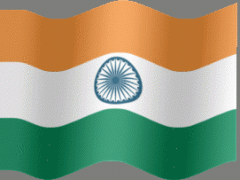The long winding road to the EU-India free trade agreement

No economy can grow in isolation and in that respect trade plays a very important role. However, before getting into any trade agreement you need to do a proper cost-benefit analysis. The European Union has had its share of problems from mounting fiscal deficits to chronic depression, and India as a developing country still needs to gather considerable financial resources to stay on its growth path.
India and the EU have been negotiating a Free Trade Agreement (FTA) since 2007. Many meetings and negotiations later, both parties have still not arrived at an agreement.
The agreement is supposed to benefit both India and EU in terms of the economic and social gains it will offer to both parties.
So what are the arguments all about? Why the discord?
Well, the EU wants to hike the FDI (foreign direct investment) cap in the insurance sector from its present level of 26 percent to 49 percent and see this as non negotiable. For its part, India has reassured the EU that it is waiting for the approval of the Insurance Law Amendment Bill of 2008 by the Indian parliament. This is the bill that seeks to raise the FDI cap from 26 percent to 49 percent.
India is demanding liberalized visa norms for its professionals, in other words improved conditions like free mobility for highly qualified Indian professionals going to the EU for work. Yet the EU does not have a common working visa system and restricts free movement of Indian professionals across the EU.
Then there is the issue of intellectual property rights. The EU wants stricter patents for its multinational drug companies but that is not in the interests of India whose generic drugs cost much less and benefit the poor. India has been able to take advantage of exemptions given to developing countries by the WTO to produce generic versions of certain medicines without the permission of their patent holders. This helps other developing countries which import cheaper medicines from India. Thus, an FTA that restricts the production of generic drugs is going to be costly not only to India, but to many other developing countries as well.
Quite apart from what the experts think, the public too has its own misgivings about some of the issues:
A student of Jawaharlal Nehru University, New Delhi has doubts about whether foreign direct investment should be raised for any sector. She says that India wants more investment because it will boost economic development. But FDI can be very flighty and inject much more volatility into the system. And there is the question of why India has to look outward for investment. Why not create an environment where domestic industries can flourish and that will give the needed push?
As for FDI in the insurance sector, one reason why India wasn’t so affected by the 2007-2008 global economic crisis was because India is a fairly regulated market that is partially insulated from the world economy. Also, considering the situation in our insurance sector which is now going through a slump, experts actually wonder whether big foreign players would be at all prepared to take the plunge.
The EU is also pressing for greater market penetration though tax reductions on wines and spirits, dairy products and significant cuts in the duty levied on automobiles. When it comes to the dairy industry, we all know that the EU has a large surplus of dairy products which it wants to export to other countries, and maintaining the subsidies it gives to its agricultural sector makes such products extremely cheap. This will make it difficult for its Indian counterparts to compete, and will also take its toll on the over 90 million people employed in the Indian dairy sector.
In terms of automobiles, cuts in duty are likely to bring down the duty on CBU (completely built unit) cars giving European manufacturers access to the Indian market. Though buyers would get greater choices at competitive prices, sales of Indian automotive companies would be badly hit. We all know that European cars are technically miles ahead of Indian models so if they sell at similar prices Indian car manufacturers will try and bring in better cars (imported ones) at even lower prices. The sole purpose of imposing import duties (at 110%) was to help the Indian automotive sector grow and lowering them will be a definite setback for Indian car makers.
India is also seeking “data secure nation status” for Indian IT companies wanting market access in Europe. “India has begun working on the data security issue but we are not there yet,” claims Ajay Sahai, CEO and director general of the Federation of Indian Export Organizations. The country is not considered data secure by the EU. EU law mandates that European countries doing outsourcing business with countries not certified as data secure have to follow stringent contractual obligations which increase their operating costs and affect their competitiveness.
Fair trade is for making better trading conditions in developing countries and promoting sustainability and should be beneficial to both parties. But with this particular FTA comes the possibility of India losing out in the long run- in terms of job cuts, dumping of goods, domestic industries bearing the brunt of free trade, increased market volatility, inflation, and non-availability of cheap drugs. If the EU-India FTA is the need of the hour then it should be signed and sealed – but not at the cost of India’s welfare.
Tags: Automobiles, Dairy sector, eu, fair trade, FDI, FTA, india, Insurance sector, Visas


